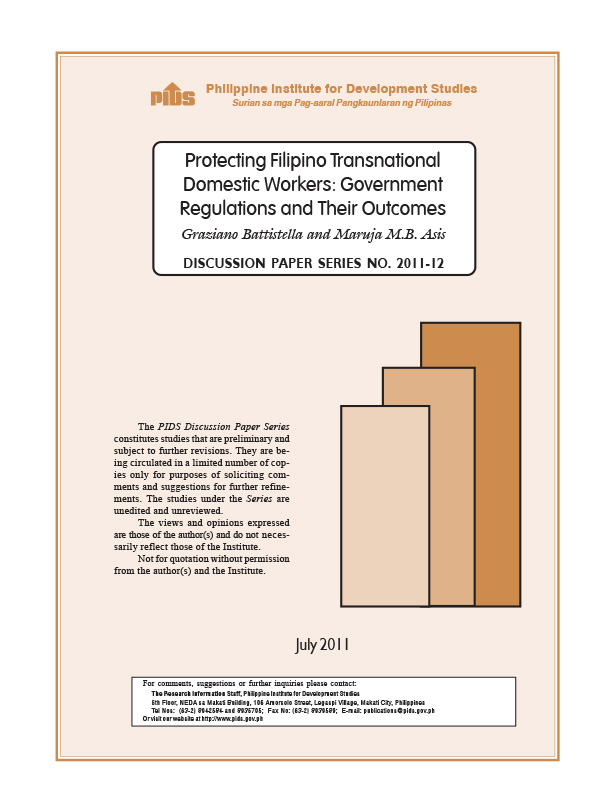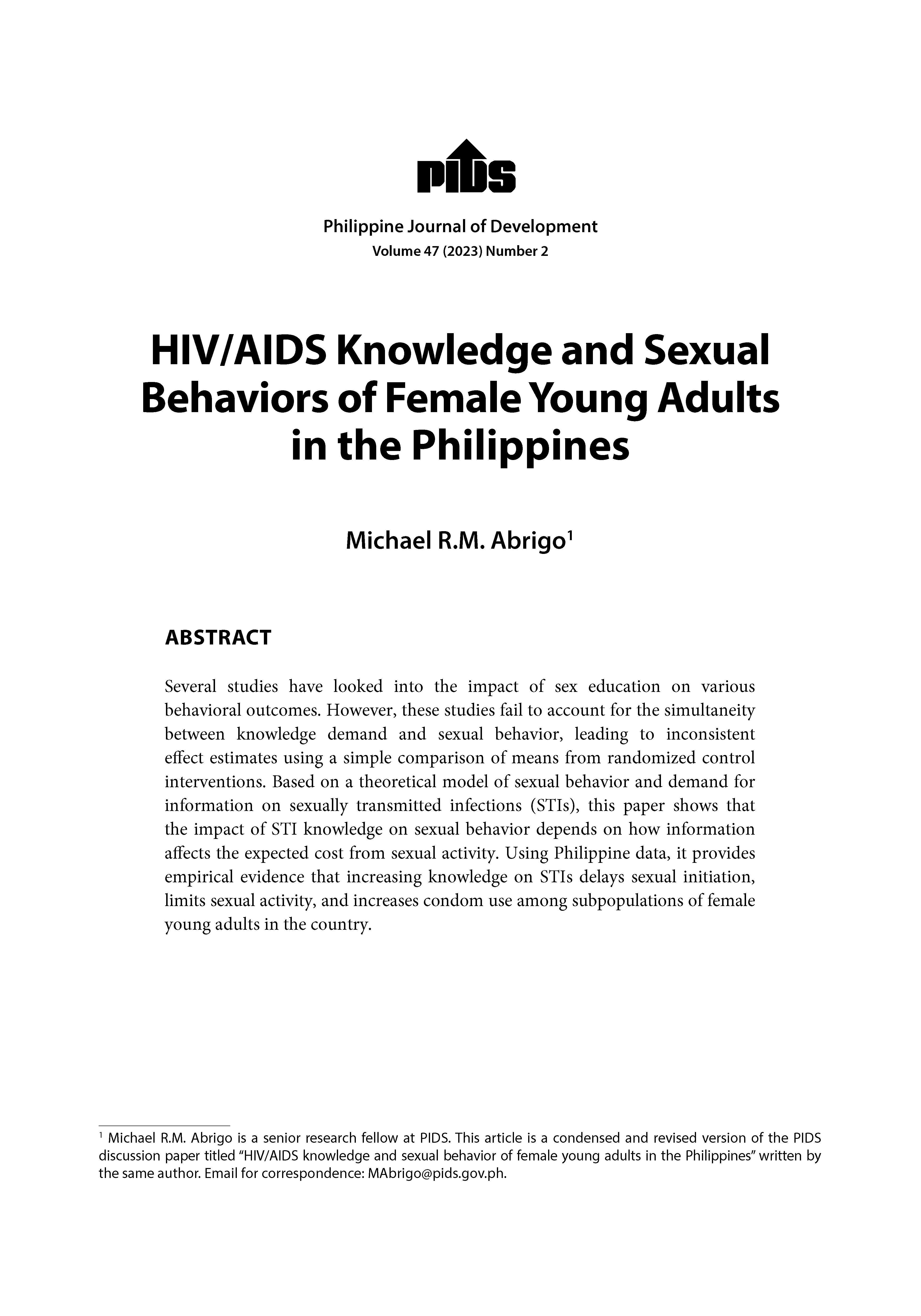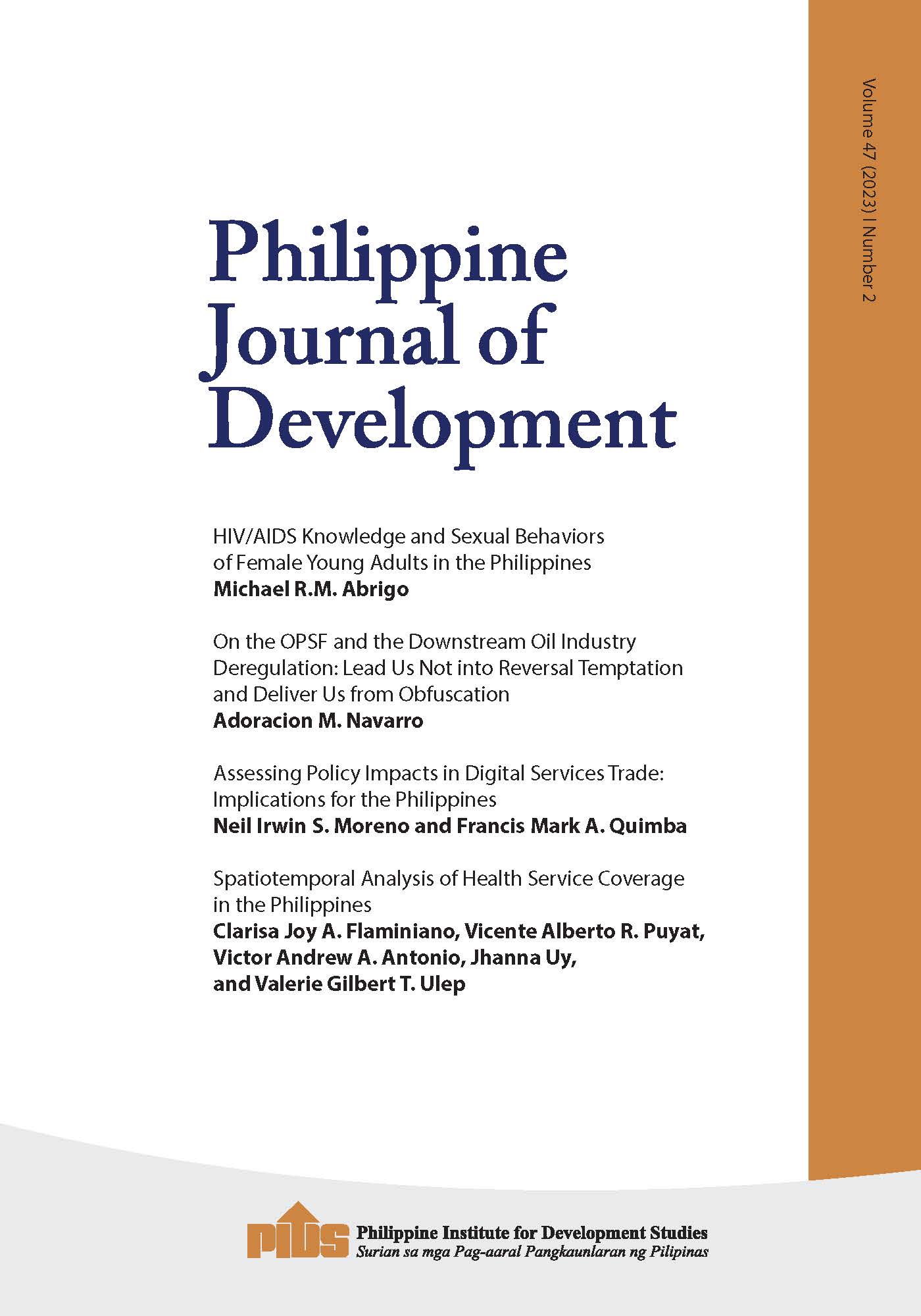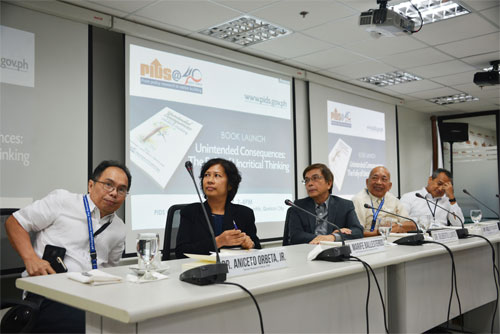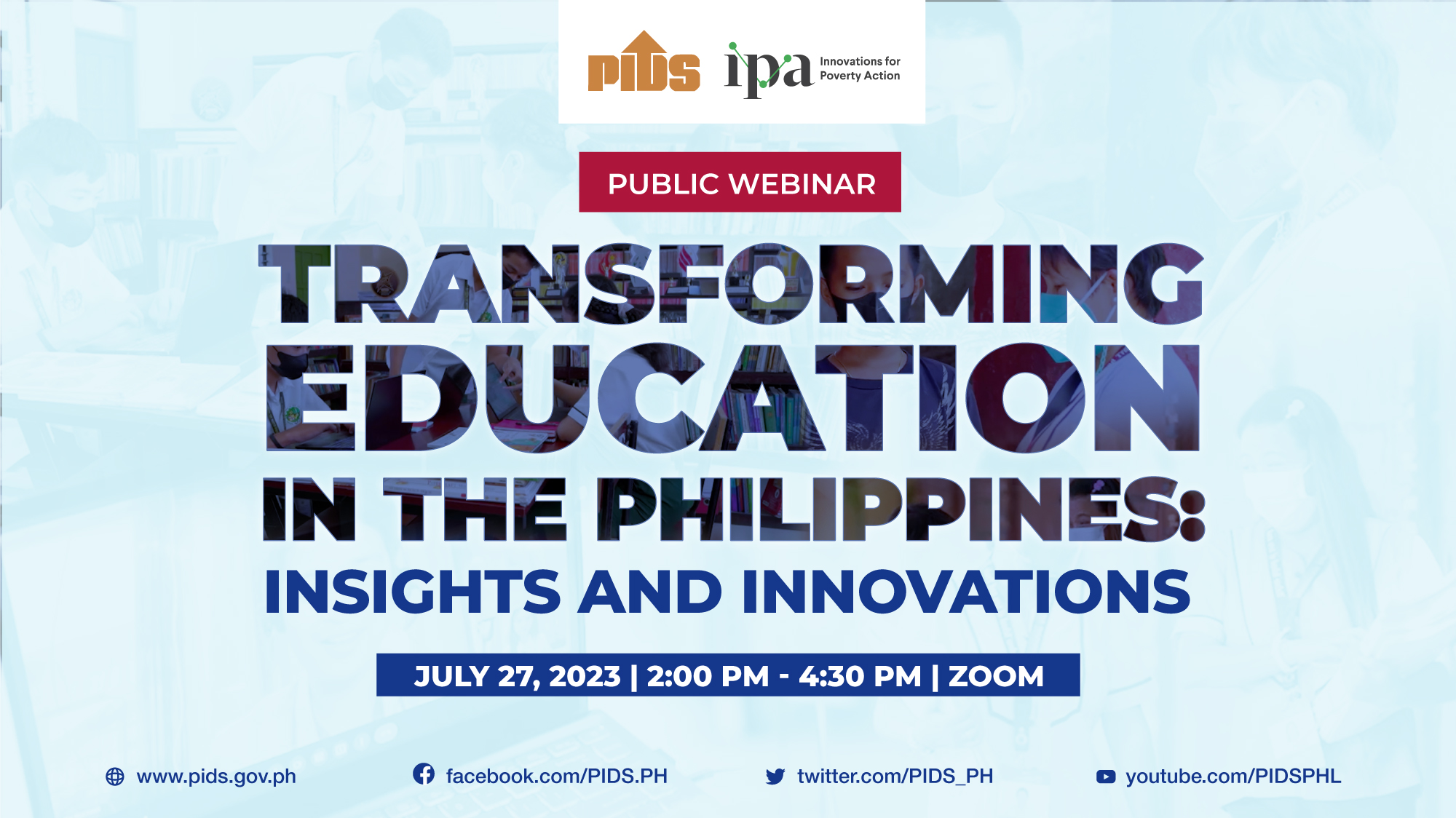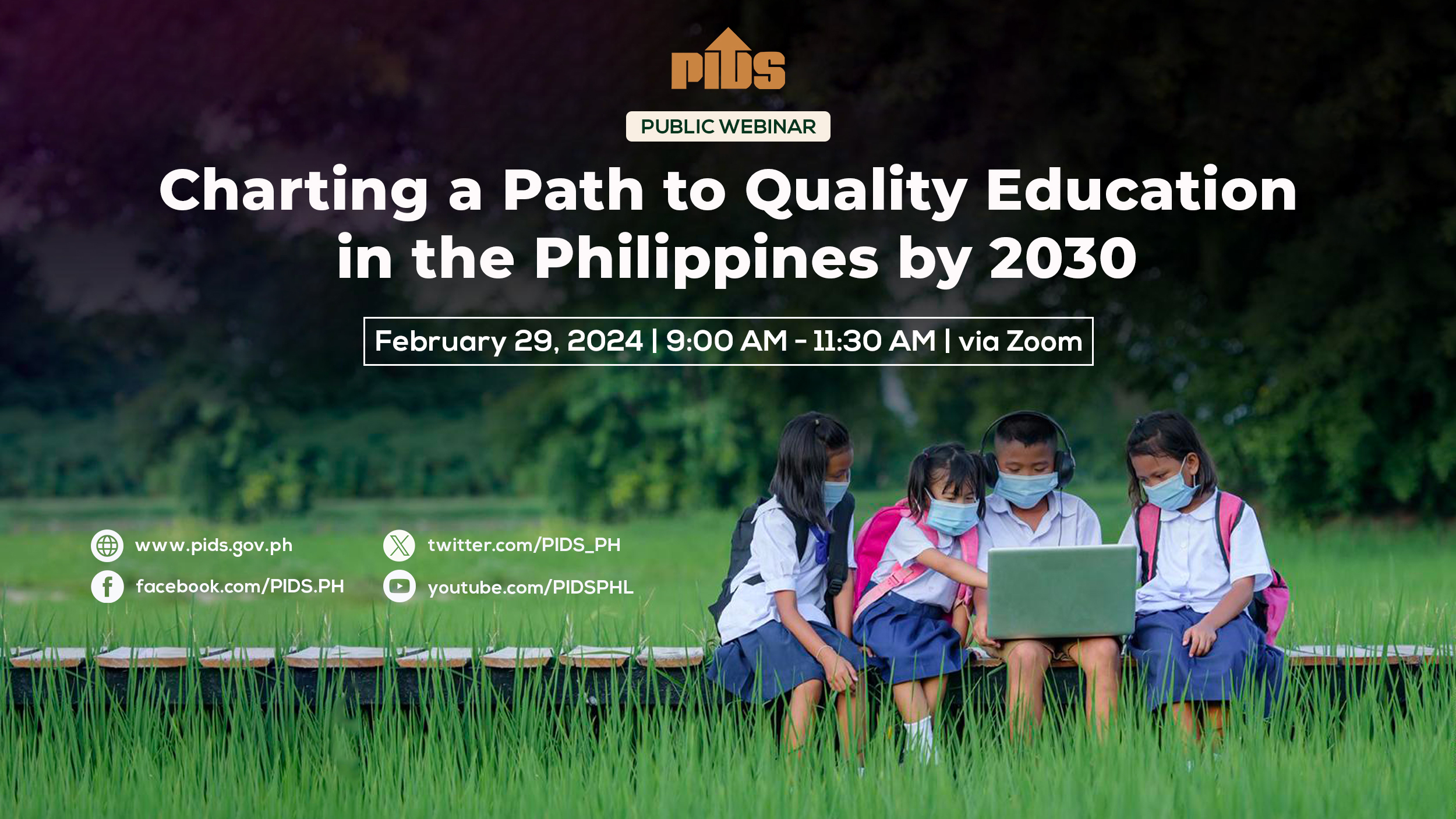
State think tank Philippine Institute for Development Studies (PIDS) disproved arguments against the sex education provision of the Reproductive Health (RH) Bill in a paper written by Michael Abrigo and Vicente Paqueo.
Critics of the RH bill have lobbied that age-appropriate health and sex education in schools will lead young people to have sex much earlier and will increase rates of sexual activity.
Abrigo and Pacqueo cited studies showing not only the lack of evidence for these claims but also the evidence for the opposite.
Evidence from studies and surveys by Johns Hopkins Bloomberg School of Public Health, the Medical University of South Carolina, the Research Institute for Tropical Medicine, the University of California, and the Philippine Statistics Authority all support the efficacy of sex education in delaying sexual initiation among young people.
Abrigo and Paqueo noted that reproductive health and sex education do not raise adolescent population’s sexual desires, but actually inhibits them. In addition, they argued that sex education also makes young adults more sexually responsible by using condoms, which lowers the risks of spreading sexually transmitted infections.
Studies show that sex education keeps young people informed and enables them to delay engaging in sexual activities to a much later age. Women who have sex and get pregnant at a much earlier age than their peers tend to attain lower levels of education.
"Filipinos especially teenagers and young adults are not well-informed about sex-related issues that could intimately and personally affect them. Addressing this information deficiency with appropriately designed sex education can be beneficial," authors maintained.
Sex education in school is a practical solution. According to the PIDS paper, it seems more prudent for the government to ensure that the youth get age-appropriate sex education than keep them ignorant.
"It is not uncommon for the young to grow up without having quality time with parents and their surrogates to discuss about sex-related issues. Often, they get false information and bad advice from peers who also need proper sex education," the authors explained.
The PIDS paper, however, acknowledged the risks in providing the youth with comprehensive sexuality education in public schools. Thus, it suggested ways to deal with concerns of premature and improper exposure to inappropriate materials.
"School officials can work together with parents, community leaders, teachers, local experts, social scientists, and health educators to develop a sex education program that is designed to provide students with accurate information about HIV/AIDS and other sex-related issues," recommended the authors.
They also argued that it is better to develop a sex education program based on a deep consultative process with key stakeholders than preventing government from providing students with opportunities to learn from professionally developed sex education programs solely because of pre-conceived ideas of their consequences.
"Moral beliefs and good intentions alone are not enough to determine whether a policy position is beneficial or detrimental to the well-being of the country’s citizens…Empirical evidence is necessary to protect them against the unintended consequences of well-meaning but misinformed policy stance," the authors concluded.
If you wish to know more about this study, download a copy of the Discussion Paper from this page: http://dirp3.pids.gov.ph/websitecms/CDN/PUBLICATIONS/pidsdps1653.pdf. ###
Critics of the RH bill have lobbied that age-appropriate health and sex education in schools will lead young people to have sex much earlier and will increase rates of sexual activity.
Abrigo and Pacqueo cited studies showing not only the lack of evidence for these claims but also the evidence for the opposite.
Evidence from studies and surveys by Johns Hopkins Bloomberg School of Public Health, the Medical University of South Carolina, the Research Institute for Tropical Medicine, the University of California, and the Philippine Statistics Authority all support the efficacy of sex education in delaying sexual initiation among young people.
Abrigo and Paqueo noted that reproductive health and sex education do not raise adolescent population’s sexual desires, but actually inhibits them. In addition, they argued that sex education also makes young adults more sexually responsible by using condoms, which lowers the risks of spreading sexually transmitted infections.
Studies show that sex education keeps young people informed and enables them to delay engaging in sexual activities to a much later age. Women who have sex and get pregnant at a much earlier age than their peers tend to attain lower levels of education.
"Filipinos especially teenagers and young adults are not well-informed about sex-related issues that could intimately and personally affect them. Addressing this information deficiency with appropriately designed sex education can be beneficial," authors maintained.
Sex education in school is a practical solution. According to the PIDS paper, it seems more prudent for the government to ensure that the youth get age-appropriate sex education than keep them ignorant.
"It is not uncommon for the young to grow up without having quality time with parents and their surrogates to discuss about sex-related issues. Often, they get false information and bad advice from peers who also need proper sex education," the authors explained.
The PIDS paper, however, acknowledged the risks in providing the youth with comprehensive sexuality education in public schools. Thus, it suggested ways to deal with concerns of premature and improper exposure to inappropriate materials.
"School officials can work together with parents, community leaders, teachers, local experts, social scientists, and health educators to develop a sex education program that is designed to provide students with accurate information about HIV/AIDS and other sex-related issues," recommended the authors.
They also argued that it is better to develop a sex education program based on a deep consultative process with key stakeholders than preventing government from providing students with opportunities to learn from professionally developed sex education programs solely because of pre-conceived ideas of their consequences.
"Moral beliefs and good intentions alone are not enough to determine whether a policy position is beneficial or detrimental to the well-being of the country’s citizens…Empirical evidence is necessary to protect them against the unintended consequences of well-meaning but misinformed policy stance," the authors concluded.
If you wish to know more about this study, download a copy of the Discussion Paper from this page: http://dirp3.pids.gov.ph/websitecms/CDN/PUBLICATIONS/pidsdps1653.pdf. ###

